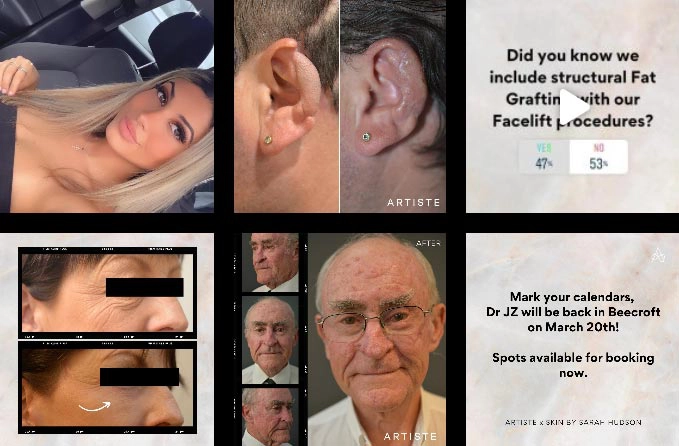Ageing Bursts: The Hidden Rhythm of Life
Model featured in photography
Most of us think of ageing as a slow and steady process, where our bodies gradually wear down over time. But recent research suggests that ageing isn’t as straightforward as it seems. Instead, our bodies may go through “ageing bursts”—periods where changes happen much more quickly than usual. This idea comes from a study called Nonlinear dynamics of multi-omics profiles during human aging.
In this blog, we’ll discuss some of the key points in the study:
Ageing Is Not a Straight Line
We tend to think of ageing as something that happens evenly over the years. You get a little slower, a little weaker, and your body becomes less efficient. However, based on this study, scientists are discovering that our bodies don’t age at the same rate all the time. Sometimes, certain parts of our bodies stay stable for a while, then suddenly experience a burst of ageing.
These ageing bursts are like sudden “jumps” in the ageing process, where parts of your body might age faster over a short period. This could help explain why some people seem to age rapidly at certain points in their lives, while others age more gradually.
Ageing Isn’t Always the Same for Every Part of the Body
One of the key findings in the study is that ageing doesn’t happen evenly across all parts of the body. For example, your heart may stay in good shape for many years, but your immune system might go through a quick decline at a certain point. These different systems in your body don’t age in sync—they each have their own ageing rhythm.
During an ageing burst, you might notice a sudden decline in a specific area, like your muscles or memory. These bursts are when your body is most vulnerable to health problems like heart disease or cognitive issues.
Ageing Bursts can be Triggered by Various Factors
The study suggests that ageing bursts can be triggered by various things. One major cause is the body’s decreasing ability to recover from stress or damage as we get older. This means that over time, your body becomes less resilient, and at some point, it hits a tipping point where a system ages rapidly.
Lifestyle choices—such as what you eat, how much you exercise, and how well you sleep—can also play a big role in when these bursts happen. Stress is another key factor. If you’re under constant stress, it can weaken your body and make you more likely to experience an ageing burst.
How Can We Use This Information?
Knowing that ageing happens in bursts can help us better manage our health as we grow older. By recognising these patterns, we can find ways to strengthen our bodies and maintain well-being. This might involve adopting healthier habits, such as regular exercise, balanced nutrition, managing stress, and staying mentally active, all of which can help improve our quality of life as we age.
If you want to learn more about the anatomy of ageing, reach out to Artiste Plastic Surgery. Our Specialist Plastic Surgeon, Dr Jack Zoumaras, has extensive knowledge of facial anatomy and the ageing process. You may have a chat with him here.
Disclaimer: At Artiste Plastic Surgery, our Plastic Surgeons led by Dr Jack Zoumaras have been trained to the highest possible degree. All surgery has risks and it is always advised to get a second opinion. Risks are very real and we cannot guarantee any result. Results are illustrated as a guide only. All risks are managed and any need for revision surgery or complications (1-5%) can be managed by our specialist plastic surgeons.
Any statements on how you will feel is based on Level V Evidence:
Level V: How you will feel after plastic surgery varies between individuals, depending on psychological and physical factors. Our internal research is based on how patients in our practice feel after surgery.
The blogs are not a substitute for a medical consultation and do not form as part of the doctor to patient relationship.
SHARE THIS ARTICLE
Jul01
Facelift Recovery Tips: What Speeds Up Healing and What to Avoid
Disclaimer: At Artiste Plastic Surgery, our Plastic Surgeons led by Dr Jack Zoumaras have been trained to the highest possible degree. All surgery has risks and it is always advised ...
Jul01
How to Prepare for Facelift Surgery: What to Do Before Your Big Day
Disclaimer: At Artiste Plastic Surgery, our Plastic Surgeons led by Dr Jack Zoumaras have been trained to the highest possible degree. All surgery has risks and it is always advised ...
ABOUT ARTISTE
Artiste Plastic Surgery is an Award Winning Specialist Plastic Surgery practice led by internationally trained Dr. Jack Zoumaras, Plastic Surgeon and Peer Reviewed Face Surgeon
Artiste offers the latest Cosmetic Surgical Procedures of the Face, Breast and Body, inspired from leading centres around the world.
STAY IN THE LOOP
Enter your email address below to receive updates on new articles and VIP access to promotions and special offers.
FOLLOW US ON INSTAGRAM










